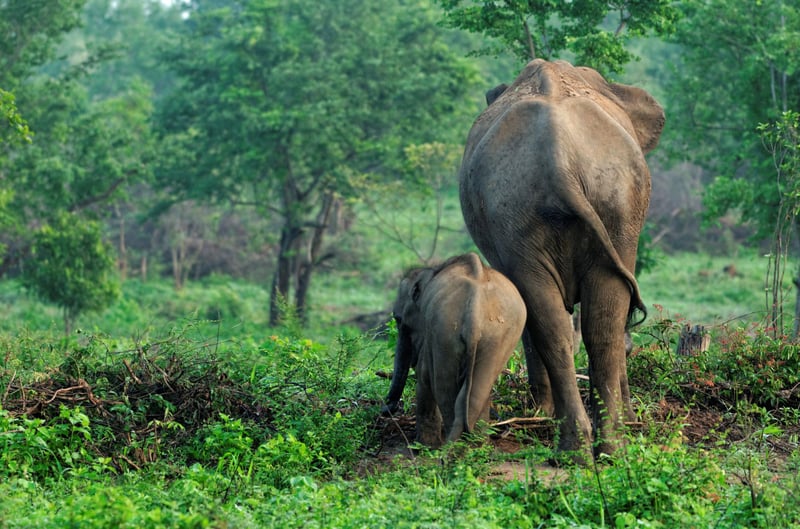
Intelligent and emotional: Elephants should never be ridden
News
Considering everything we know about the emotional lives of elephants, it’s disheartening to hear that the number of elephant ride attractions are increasing in southern Africa.
It is still a relatively recent tourist attraction there, and so this new trend means more elephants will be bred into a life of misery. Elephants can live for up to 70 years, and so we need to act quickly to stop any more elephants being forced into decades of suffering.
Intelligent and emotional
Elephants are amazing animals and the more we learn about their intelligence and emotional minds the more we realise just how alike us they really are. For example, elephants are one of the few species that are thought to grieve (Bradshaw, 2004; Douglas-Hamilton et al., 2006). Mourning the dead was once a behaviour considered to be unique to humans, yet elephants are among the growing list of animals thought to be capable of grief (King, 2013).
This just goes to show how incredibly complex these majestic animals are. It also sadly shows us just how much they will suffer when they are forced into being used for entertainment. In the wild male elephants will stay with their mother for 12 years, and females will stay close to their mothers for their entire lives. To fuel this tourist trade, hunters capture elephant calves at a very young age when they are still dependent on their mothers.
Elephant families are incredibly protective of their young, and so when they attempt to guard their calf they often get killed so that the poachers can take the calf. The calf will be witnessing all of this, which has a devastating and lasting effect on them (Williams, 2006).
Broken spirits
Elephants are known to incur post-traumatic stress syndrome following a serious trauma (Bradshaw et al., 2005). The experience of being captured and witnessing their family members being killed is enough to bring on this mental illness. The suffering doesn’t end there for these traumatised elephants. In order for them to be ridden, they have to be broken.
To do this they are restrained in a small cage, tied up to prevent them from moving. Their trainer will then begin to ride on their neck and use painful tools, such as metal bull hooks, to control them. These tools cause severe pain to the elephants, which along with their mental suffering results in a traumatised and broken elephant.
This is sadly what the trainer wants. Elephants are big and strong and can be incredibly dangerous. Therefore, to safely work with them, the elephants have to be submissive to their trainer, which they seek to achieve by breaking them.
Once broken these elephants are destined to a life in captivity, chained up to prevent them from roaming freely, restricted from ever forming social bonds with other elephants, and taken away from their family groups. The lives of these elephants are so far removed from what should have been.
Take action
Cruel elephant riding attractions are spreading in Southern Africa and increasing across parts of Asia. You can help. Help us protect elephants by educating tourists, tour operators and local stakeholders to get exploitative elephant experiences off tourists' wish lists.
References and Further reading
The articles below are just a small snapshot of the research into elephant intelligence and emotions.
Bradshaw, I. G. A. (2004). Not by bread alone: symbolic loss, trauma, and recovery in elephant communities. Society & Animals, 12(2), 143-158.
Bradshaw, G. A., Schore, A. N., Brown, J. L., Poole, J. H., & Moss, C. J. (2005). Elephant breakdown. Nature, 433(7028), 807-807.
Douglas-Hamilton,I, Bhalla, S, Wittemyer, G, Vollrath, F (2006) Behavioural reactions of elephants towards a dying and deceased matriarch, Applied Animal Behaviour Science, 100, 87-102.
King, B. J. (2013). How animals grieve. University of Chicago Press.
Williams, C. (2006). Elephants on the edge fight back. New Scientist, 18, 39.
By:
Helen Proctor, Sentience Manager, World Animal Protection